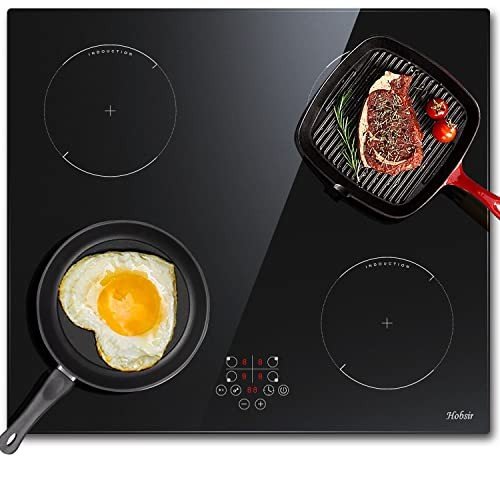The Comprehensive Guide to Sales Ovens: Understanding Their Importance, Types, and Best Practices
Sales ovens, a category of industrial cooking devices, are key players in the culinary and foodservice market. These appliances, created to prepare food in large amounts efficiently, are vital in dining establishments, catering services, and other food establishments. This article digs into the value of sales ovens, their types, and best practices for picking and using them efficiently.
What Are Sales Ovens?
Sales ovens, broadly specified, are cooking devices used mostly in industrial kitchens to prepare, bake, or heat various food products at scale. Their style enables them to deal with greater volume cooking compared to standard residential ovens. Provided the nature of food service, sales ovens typically include sophisticated innovations that promote speed, effectiveness, and even cooking.
Importance of Sales Ovens in the Food Industry
Sales ovens play a critical role in food production for lots of reasons:
- Efficiency: Sales ovens can prepare food more quickly and uniformly than traditional ovens, allowing chefs to prepare meals in less time.
- Consistency: With precise temperature level controls, sales ovens guarantee that the food is prepared equally every time, maintaining quality throughout thousands of portions.
- Adaptability: Many sales ovens can deal with various cooking techniques including baking, roasting, broiling, and even steaming, making them suitable for diverse menus.
- Energy Savings: Modern sales ovens are typically designed to be energy-efficient, reducing operational costs for services.
Types of Sales Ovens
The market offers a range of sales ovens, each suited for specific cooking needs and kinds of food. Here are the most common types:
| Type of Oven | Description | Best For |
|---|---|---|
| Convection Ovens | Utilize a fan to flow hot air, guaranteeing even cooking. | Baking and roasting items. |
| Combi-Ovens | A combination of convection and steam cooking, providing versatility in cooking methods. | Diverse menus requiring steaming and baking. |
| Conveyor Ovens | Use a moving belt to continuously prepare food, perfect for high-volume operations. | Junk food and pizza. |
| Deck Ovens | Function separate compartments (decks) that can be separately controlled, providing high efficiency. | Artisan bread and pastries. |
| Rotisserie Ovens | Developed to gradually roast meat on a spit, providing tender and juicy results. | Roasted meats. |
Selecting the Right Sales Oven
Selecting the proper sales oven for a particular company requires factor to consider of a number of factors:
- Volume Needs: Assess the volume of food that requires to be prepared. Higher volume means opting for conveyor or combi-ovens.
- Menu Diversity: Understanding what kind of meals will be prepared can guide the choice process. For instance, a pastry shop might require a deck oven, while a restaurant may take advantage of a convection oven.
- Space Availability: Measure kitchen area to make sure the ovens fit appropriately and have needed ventilation.
- Budget plan: Commercial ovens can vary significantly in rate, so establish a budget that thinks about long-term operational cost savings.
- Energy Efficiency: Opt for ovens that have energy ratings to keep utility costs manageable.
Best Practices for Using Sales Ovens
Successfully running a sales oven involves more than basic use. Here are some best practices to bear in mind:
- Regular Maintenance: Schedule routine maintenance to clean and check the functionality of the oven. This ensures longevity and performance.
- Preheating: Always preheat the oven to the preferred temperature level before placing food inside for constant cooking results.
- Use Thermometers: For precision, use an oven thermometer to make sure that temperatures remain consistent, particularly for baking.
- Follow Cooking Times: Adhere to advised cooking times based upon the kind of food being prepared. Ovens & Hobs may be required for various ovens.
- Prevent Overcrowding: Ensure adequate area around food products in the oven to enable for proper air circulation.
The Future of Sales Ovens
As innovation advances, so do the capabilities of sales ovens. Innovations such as wise innovation, energy-efficient designs, and enhanced security features are becoming more popular. These developments guarantee to boost cooking efficiency while likewise fulfilling sustainability goals.
FAQs about Sales Ovens
Q1: How do I tidy my sales oven?
A: Regular cleaning includes eliminating any food particles, wiping down surface areas with non-corrosive cleaners, and following particular cleansing suggestions from the producer.
Q2: What's the life expectancy of a business oven?
A: Typically, a well-maintained commercial oven can last anywhere from 10 to 20 years, depending on usage and upkeep.
Q3: Can sales ovens be used for baking?
A: Yes, lots of kinds of sales ovens, specifically convection and deck ovens, are specifically created for baking a range of items.
Q4: Are there energy-efficient choices for sales ovens?
A: Yes, numerous producers offer energy-efficient designs that lower energy usage without sacrificing efficiency.
Q5: How typically should I conduct upkeep on my sales oven?
A: It's a good idea to perform routine upkeep checks each month or quarter, depending upon usage levels. In addition, a detailed inspection needs to happen at least yearly.
Sales ovens are indispensable in the modern-day culinary landscape. Their capability to cook big amounts of food efficiently makes them vital for dining establishments, catering services, and other food facilities. By comprehending the numerous types, selecting the right oven, and adhering to best practices, food service companies can optimize their cooking processes, boost their offerings, and eventually delight their clients with outstanding cooking productions.

